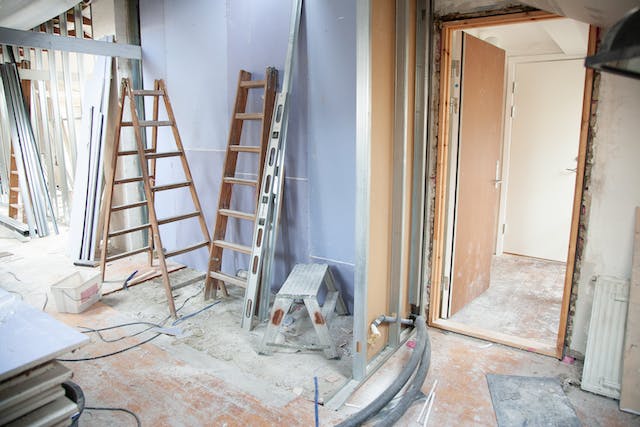Choosing What Comes First When Renovating Your Omaha Home

When renovating your Omaha home within a limited budget, prioritizing projects can be challenging. Even if you have $12,000 to spend, upgrading the fence, patio, bathroom, and kitchen cabinets (each around $3,000) would exceed the total budget. You'll need to determine the order of importance among these desired upgrades to stay within your budgetary constraints.
Renovating your Omaha home can be a tricky conundrum, especially if you’re trying to avoid going broke in the process. Moving forward with renovations can cause anxiety if you don’t properly research, set a budget, and determine each project's return on investment. Before swinging that hammer, take the time to thoughtfully plan your renovation approach. This will help ensure you can make the upgrades you want without having to sell your house to pay for them.
Ask yourself why you're doing it
Before beginning a renovation, identify your objective—whether it's increasing rental income, boosting resale value, personal enjoyment, keeping up with neighbors, generating flipping profits, or something else important to you. Knowing your goal upfront will help you stay focused and make the right choices once the work is underway.
Prioritize
When funds are limited, renovations to frequently used items or those you can appreciate regularly may be a better investment than a major project like adding a covered patio. Even if a patio is appealing, carefully consider whether you'll use it enough to justify the cost. Building one could lead to more expenses like outdoor furniture, electronics, climate control devices, and décor. If you don't enjoy being outside much, directing funds toward interior renovations could bring more daily enjoyment. With any major home project, have honest conversations with yourself about its benefits versus the costs, both financial and practical.
Consider your budget
Regarding the budget, certain renovations are clearly more expensive than others. Some projects may also be higher priority for you than others. Many people struggle with wanting instant gratification (I'm certainly guilty of that!). It might be wise to start with a few minor upgrades that will give you a sense of progress. Alternatively, you could save aggressively for a couple months to afford the dream kitchen countertops you've been wanting.
Ask around
You may be able to reduce your hard costs by hiring a skilled handyman rather than a flooring company to install your floors. You could also take advantage of special offers from big box stores like Home Depot's current free carpet installation promotion to lower costs. Signing up for daily emails from Home Depot and Lowes provides access to limited-time deals that can save money. These retailers send Daily Deals valid for one day or until sold out.
Consider the ROI
If you cannot determine which renovation provides more value based on your needs, consider the potential return on investment. One project may offer a higher ROI than the other. Consult the Cost vs. Value Report, which compares the average cost and resale value of 21 popular remodeling projects across 149 markets. This report is an excellent resource for assessing renovation ROI.
Assess Your House
Hire a licensed home inspector to thoroughly examine your house before deciding on renovation plans. Have the inspector climb into the attic to check for dampness, scan the basement for leaks, test the HVAC systems, inspect the roof, plumbing, and electrical panels. Although you may want to update the master bath and re-face the fireplace, more pressing maintenance issues could require attention first. Evaluate the home inspector's findings to determine the most urgent priorities and develop an action plan.
Think about everyday costs
While new appliances and home upgrades like doors and windows require an upfront investment, their energy efficiency will save you money regularly in the long run.
Renovating your Omaha home may be one of the bigger challenges you'll take on as a home owner. But it can be a profitable and rewarding experience if you follow these tips.
Have your home needs changed in the past year? Perhaps you’ve outgrown your present home, or need to downsize to a more suitable home. If you’re ready to make a move, let’s connect and talk about all the amazing opportunities that are available to you!









